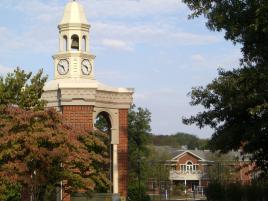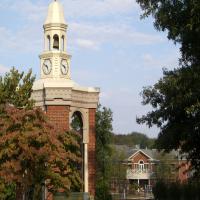ED Seeks Comments on First Amendment Ruling’s Impact

Going back to our high school history classes, we learned that the First Amendment to the U.S. Constitution provides that Congress make no law respecting an establishment of religion or prohibiting its free exercise. It protects freedom of speech, the press, assembly and the right to petition the government for a redress of grievances.
We mention this lesson as a backdrop when mentioning that the Department of Education (ED) this week sought public input on how regulations adding material conditions relating to First Amendment freedoms and free inquiry to ED grants have affected or are reasonably expected to affect decisions surrounding First Amendment and free speech-related litigation in federal and state court and institutional policies on freedom of speech. ED’s Office of Postsecondary Education is requesting these comments, which must be submitted by March 24, to help it review its current regulations and its implementation of applicable grant programs.
During the Trump administration, ED issued regulations to add material conditions related to First Amendment freedoms and free inquiry to certain ED grants, which became known as the “Free Inquiry Rule" (34 C.F.R. §75.500(b) and (c) for direct grant programs and 34 C.F.R. §76.500(b) and (c) for state-administered formula grant programs). Under this rule, public institutions of higher education (IHEs) that receive these ED grants must comply with the First Amendment, and private institutions that receive grants must follow their stated institutional policies on freedom of speech, including academic freedom. The intended effect of making compliance a material condition of receiving ED grants is to encourage IHEs to foster environments that promote open, intellectually engaging and diverse debate.
Some institutional stakeholders have since raised concerns that the provisions added by the 2020 final rule unnecessarily go beyond what is required by the courts, encourage campus community members to pursue litigation more frequently and undermine existing campus processes. Others said that these provisions could increase institutional costs as a result of increased litigation and prompt institutions to change their approach to litigation, such as being more likely to settle. Private institutions have told ED that the regulations may incentivize private colleges to limit, eliminate or reconsider their policies on free speech for fear of losing grant funds.
In response, ED is seeking comments on the following issues:
- whether and how the current regulations have affected or are reasonably expected to affect decisions surrounding First Amendment and free speech-related litigation in federal and state court;
- how these regulations have affected or are reasonably expected to affect public IHEs’ approach to designing institutional policies related to First Amendment protections, including on- campus processes used to address alleged free speech and academic freedom violations;
- how these regulations have affected or are reasonably expected to affect private IHEs’ approach to designing institutional policies related to free speech and academic freedom, including on-campus processes used to address alleged free speech and academic freedom violations;
- whether and how these grant conditions have provided additional protections of First Amendment rights in the case of public colleges, or promotion of free speech and free inquiry policies in the case of private institutions;
- whether these regulations affect or could be expected to affect how aggrieved campus community members seek resolution to alleged free speech and academic freedom policy violations;
- whether these regulations have resulted in additional quantifiable costs beyond what was considered in the 2020 final rule; and
- any other information that the public believes would inform ED's understanding of the impact of these regulations.
We encourage any and all impacted stakeholders to response to this request for information.
Join us for our following Thompson Grants events:
Nonprofit Legal, Finance, and Grants Conference | April 6-7, 2023 | Washington, D.C.
Federal Grants Forum | June 28-30, 2023 | Portland, Maine



